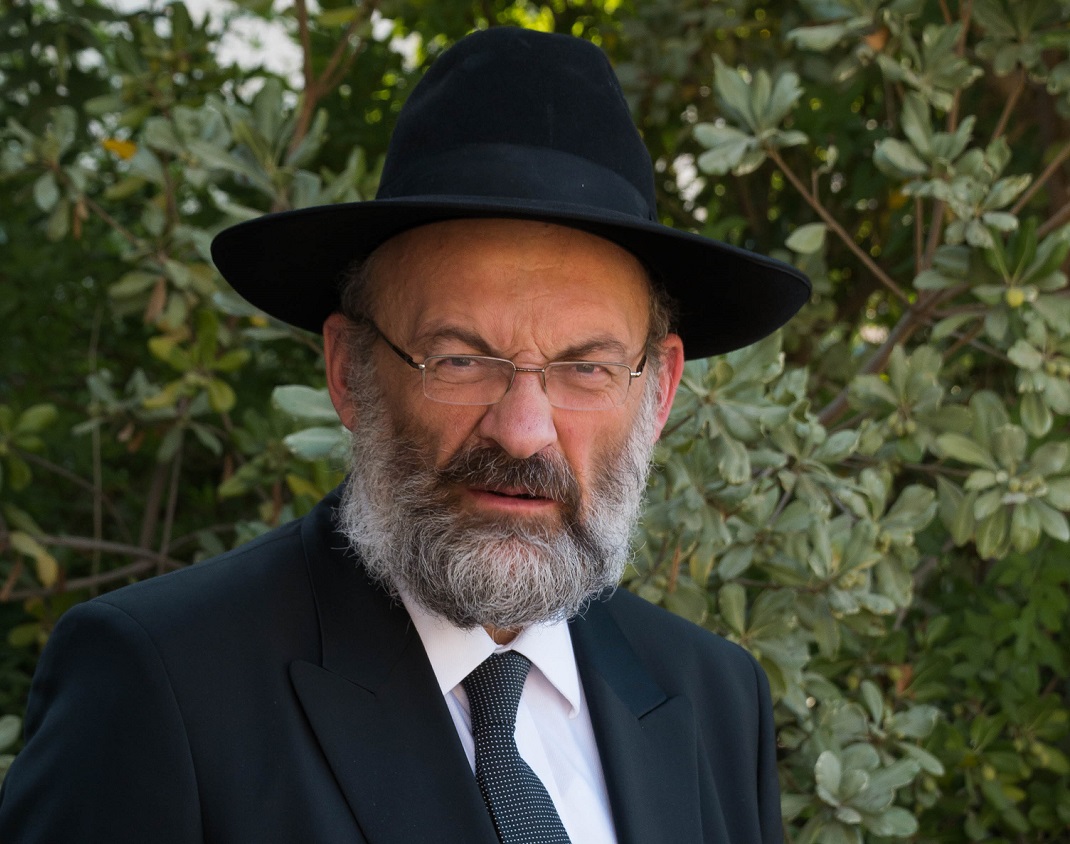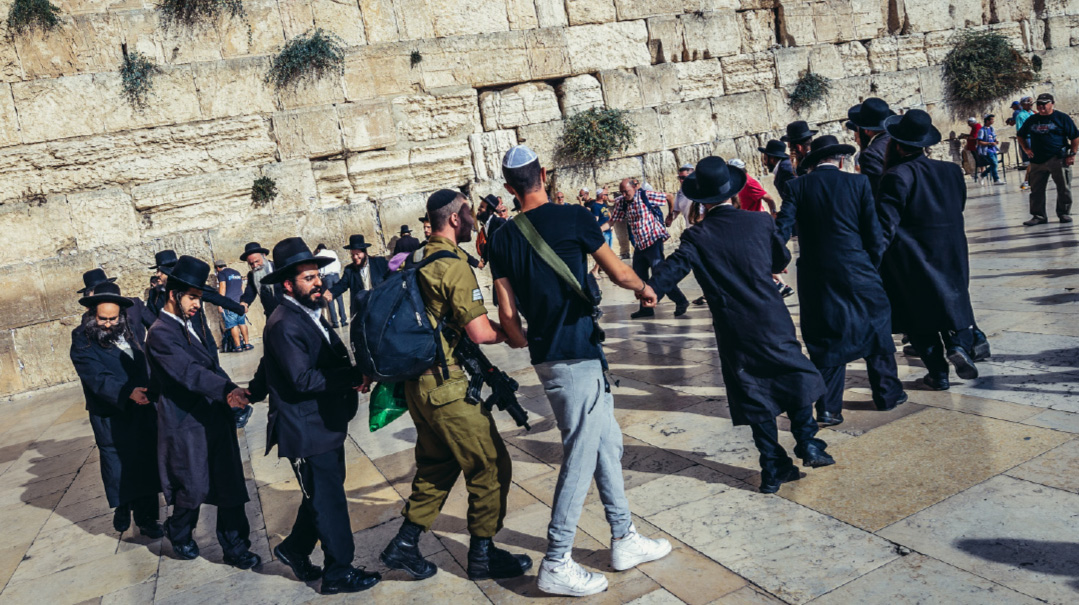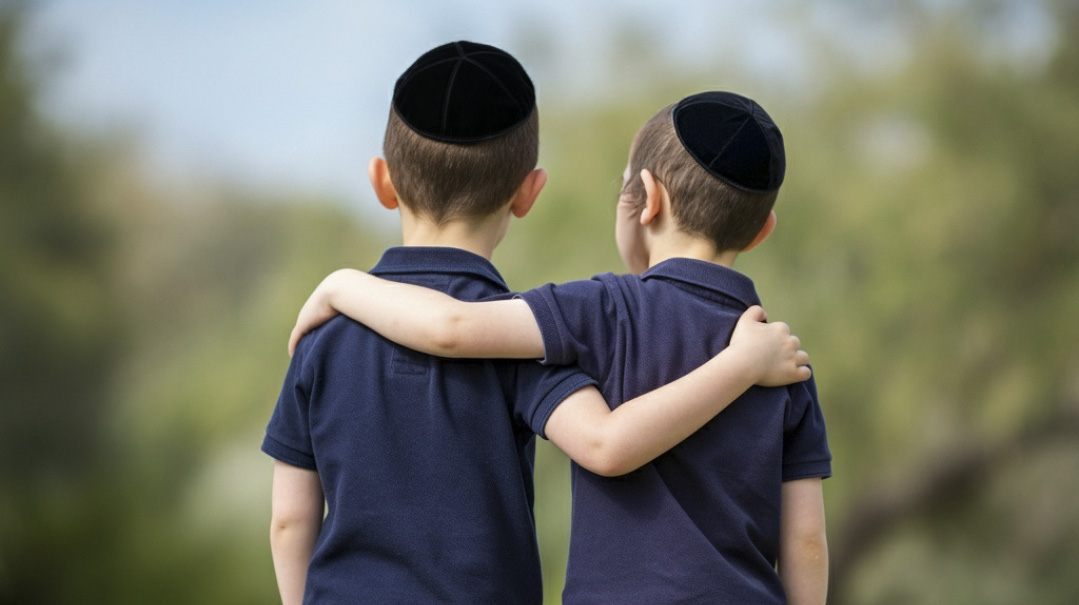Love the Yisrael in Each Jew

If we keep an open mind, we’ll see that many people around us are greater than we thought

Prepared for print by Rabbi Eran Feintuch
One of the most fundamental mitzvos in the Torah — and one of the most difficult — is loving our fellow Jews. It’s challenging to treat all Jews with kindness and respect, but what’s even more difficult is developing the inner love the Torah demands of us. Ahavas Yisrael means loving every Jew because he’s a Jew, a member of the holy nation that continues the legacy of Avraham, Yitzchak, and Yaakov.
Every Jew has the spiritual genes of our forefathers, and a spark of the Jewish greatness they imparted to their progeny. We simply have to open our eyes to see it.
It’s not enough to believe that Klal Yisrael is a great nation, or to believe that every Jew has great potential. We have to try to actually see this greatness emerging in each and every Jew we meet. If we seek it, we’ll begin to notice Jewish greatness all around us.
Once we see the greatness of Klal Yisrael in the people around us, ahavas Yisrael will come to us naturally. Rather than merely admiring the qualities of others, we’ll love them for their Jewishness. That’s the true meaning of ahavas Yisrael: loving the Yisrael within each Jew.
Unfortunately, we don’t usually see other people’s greatness. Most people seem decidedly mediocre. But while it’s true that not everyone is a model of perfection, if we open our eyes, we’ll catch glimpses of Jewish greatness all around us, even where we least expect it.
Several years ago, I was on a bus full of many secular passengers. Near my seat, a high school student was excitedly telling his friend about his upcoming graduation exams. He was half-shouting, and the whole bus could hear every word.
“I have a test on Tanach, and I need to remember all the things the prophets of Hashem said,” the boy said — but he didn’t say “Hashem.” He spoke out Hashem’s name.
At that moment, the whole bus suddenly became silent like Mussaf on Rosh Hashanah.
I never would have dreamed that those totally irreligious Jews would react that way. Why should they care if someone flippantly uttered Hashem’s name? Their inner Jewishness was revealed in a surprising way.
It’s not only secular people who can surprise us with their Jewishness. All Jews have greatness in their spiritual genes. It doesn’t always come to the surface, but at times it reveals itself in unexpected ways. But even when that happens, it often slips under our radar. We fail to notice it altogether. That’s because we can’t see beyond our own expectations.
Like Adam Harishon who defined each creature’s nature by naming it, we pin labels on everyone around us. When we meet someone, we quickly sum up his character. I know him. I know his personality, his strengths and weaknesses. From then on, everything that person says or does stays within the confines of our assumptions. For better or for worse, we only see what we expect to see.
If we want to develop ahavas Yisrael, our main avodah is to let other people surprise us. In our interactions with others, we’re too absorbed in our own assumptions to really see the other person. We have to let the other person take center stage.
This is no easy task. We stubbornly cling to our assumptions about others. We want to feel assured that we know what to expect from them. I don’t know whether that’s because of innate human arrogance, jealousy, or a need for comfort and stability, but it doesn’t make a difference. The fact is that we want other people to be what we expect, and that’s why we so often fail to notice when other people express their Jewish greatness.
If we look at others superficially, we only see corroboration of our assumptions. If we want to see a person’s greatness, we have to let him show us who he really is.
We can’t know how another’s greatness might be revealed. We might discover greatness in their personality, their emunah, or their wisdom. We have to expect the unexpected, and be prepared for the moment when others express their innate Jewish nobility.
I had a friend who was highly intelligent and erudite, a well-respected figure in the community. Then he developed a brain tumor, Rachmana litzlan, and all his intelligence vanished. He didn’t recognize his own children. But he was extremely thankful to everyone. He thanked everyone profusely for bringing him food or drink, and apologized for causing them to go out of their way for him.
He was always a kind person, but most people didn’t know why. They didn’t know if his kindness really stemmed from a good heart, or because his mind told him that being amiable is a good way to win friends and influence people. But when Hashem took away his intelligence, a great person was revealed, a man with a golden heart.
But many people didn’t see that revelation. They just saw a tragedy, nothing more. A brilliant man, a nice man. What a pity. They didn’t see that he was a much bigger person than they knew.
That’s because they thought they already knew him. Even when his sterling middos were clearly revealed, those people didn’t look beyond their own preconceptions.
If we keep an open mind, we’ll see many people around us are greater than we thought. We just have to be willing to put aside our assumptions about others, and let them surprise us.
I knew a rosh yeshivah. Everyone knew he was a talmid chacham, but few knew the extent of his personal greatness. I spoke with him frequently, and like everyone else, I thought I knew him, until a few casual words showed me his true caliber. The bochurim in this yeshivah really enjoyed the style of learning, and someone brought up the popularity of the yeshivah’s shiurim.
He sighed and softly muttered: “It’s nice they like the learning style, but will they become talmidei chachamim?”
I felt as if a thick veil had been lifted. I suddenly saw an enormous person in front of me, far greater than I’d ever dreamed. At that moment I realized that the rosh yeshivah was opposed to the style of learning the shiurim employed. He held it was not the right way to build the bochurim into bona fide talmidei chachamim. But he saw the popularity of the new style, so he considered himself “outvoted.” He worked tirelessly to raise funds for the growing yeshivah. He gave up on sleep, comfort, and his own learning to make it possible for more and more bochurim to join. And he did all this, secretly opposed to the learning approach in his own yeshivah!
I’ve heard people lament that today people are so small. If that’s what you think, you have no chance of achieving ahavas Yisrael. How can you love every Jew for his Jewishness if you think Jewish greatness is a thing of the past? It’s true, our generation isn’t on the level of previous ones. But we’re still Jews. We still have Jewish greatness within us. We only have to open our eyes to notice when that greatness reveals itself.
If we do so, we’ll start to see big people all over. Selfless givers. Torah lovers. Devoted friends. We just need to put away our labels.
It’s relatively easy to do this with strangers. The real measure of success, though, is whether we can do this with the people we know well. The more we know someone, the more we fail to see beyond our preconceived notions.
When we succeed in keeping an open mind about the others around us, we ourselves stand to gain so much. Wouldn’t it be nice to discover that our spouse, our children, our neighbors and friends are greater than we thought? Let’s do our best to put aside our preconceptions, and let them surprise us. Let’s open our eyes, ears and mind to discover the Jewish greatness within the people around us. If we do that, we’ll find that ahavas Yisrael is surprisingly close at hand.
This column will appear once a month
(Originally featured in Mishpacha, Issue 936.
Oops! We could not locate your form.







